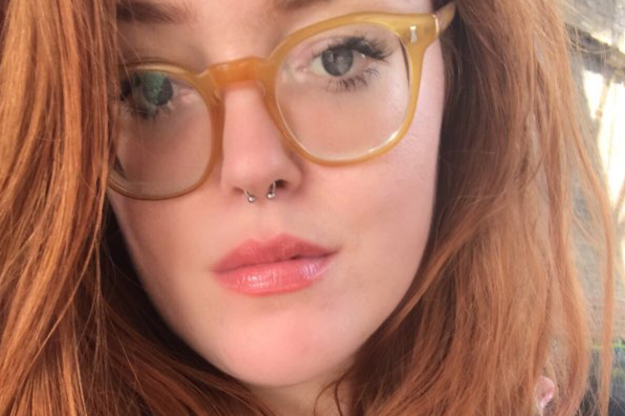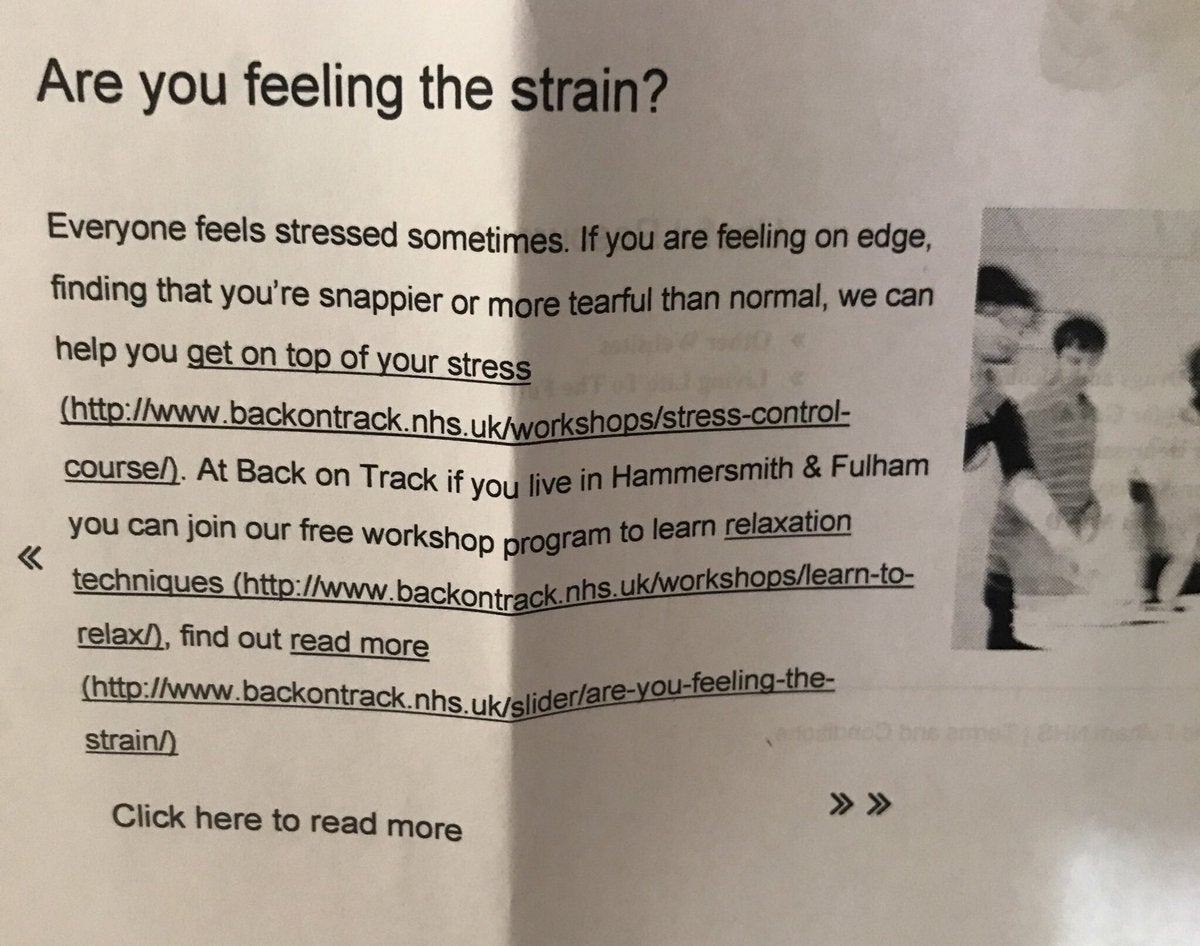The Independent's journalism is supported by our readers. When you purchase through links on our site, we may earn commission.
Suicidal woman sent home from A&E with 'Are you feeling the strain?' print-out
Many other people also shared stories of similar experiences

Your support helps us to tell the story
From reproductive rights to climate change to Big Tech, The Independent is on the ground when the story is developing. Whether it's investigating the financials of Elon Musk's pro-Trump PAC or producing our latest documentary, 'The A Word', which shines a light on the American women fighting for reproductive rights, we know how important it is to parse out the facts from the messaging.
At such a critical moment in US history, we need reporters on the ground. Your donation allows us to keep sending journalists to speak to both sides of the story.
The Independent is trusted by Americans across the entire political spectrum. And unlike many other quality news outlets, we choose not to lock Americans out of our reporting and analysis with paywalls. We believe quality journalism should be available to everyone, paid for by those who can afford it.
Your support makes all the difference.A journalist and author who went to A&E because she was feeling suicidal has revealed how she was sent away with a print-out entitled “Are you feeling the strain?”
Since tweeting about her experience, Emily Reynolds' comments have gone viral, with many people sharing their own similar experiences.
Reynolds, 26, says she went to the hospital because she “couldn’t cope.”
“I was feeling suicidal and didn’t know what else to do,” the Londoner, who has previously been diagnosed with bipolar disorder, tells The Independent.
“First I called a crisis line I’d been given previously, who after a brief assessment told me to go to A&E and ask for a psychiatric nurse,” she explains. “I then waited for a few hours and was passed between an A&E doctor, an A&E nurse, a psychiatric nurse and then finally a psychiatry liaison team. By this point I was visibly pretty distressed.”
Reynolds says she doesn’t really have any complaints about how she was treated - “most of the staff I saw were pretty empathetic, particularly the first mental health nurse I saw and the trainee mental health nurse who was on the liaison team” - but her issue is with what was considered a solution.
“My problem was with the actual help that was offered,” Reynolds continues. “I really don’t think it’s appropriate to give someone suicidal a printed-off webpage that says ‘are you feeling the strain?’ and suggests relaxation workshops.
“Not even a pamphlet! A print-out! A glossy bit of paper might have eased the pain a little bit, but no… a black and white print-out.”

After tweeting about what happened, Reynolds was shocked by the reaction - her tweet has received 3,800 retweets, over 24,000 likes and over 1,500 replies.
“I write about mental health and obviously have been in and out of various mental healthcare pathways for the last ten years, so I knew [the situation] was bad,” she says. “But the sheer volume of the replies did shock me. I couldn’t believe how many different ways people were being failed.”
One woman revealed how she’d gone to A&E because she was struggling with her eating disorder and consequently her mood, but was simply told to “join the gym,” “think positively” and “try not to kill herself.”
Another woman said when she went to A&E suicidal, she was told she “should just get over it.”
Reynolds believes the main problem lies with funding, but also physical and mental health are not given equal importance.
“The idea that physical and mental health have parity of esteem is just a lie,” she says. “In the past I’ve always been hesitant to criticise care I’ve had because I think it’s so important to support the NHS and to understand that many of the issues with it are simply down to cuts in funding.”
Earlier this year, it was revealed that mental health trusts have been left with less funding in real terms than they had in 2012 as experts warn patients with mental illness are “bearing the brunt” of government cuts to the sector.
“But I also think there needs to be better training and education, particularly for healthcare professionals who don’t specifically work in mental health,” Reynolds continues.
Reynolds, author of A Beginner's Guide to Losing Your Mind, says that many of the replies she received to her tweet were stories featuring “often well-intentioned but absolutely ill-informed and damaging attitudes and opinions about mental health – these largely came from a place of ignorance.”
She has personal experience of this too: “When I was in hospital a few weeks ago for a physical complaint, the nurse looking after me saw my extensive self-harm scars and scolded me for them, telling me that I shouldn’t do it because ‘life is beautiful’,” Reynolds says.
“Her intentions were good, but it felt awful - I felt so judged. It just belied a total lack of understanding of the issues.”
Reynolds acknowledges that there are many issues which need addressing, but believes that “better education and training might be a start.”
A spokesperson for NHS England said: "We can’t comment on individual cases like this and hard to do so without knowing any of the details.
"We remain on track to deliver our ambition of 24 hour ‘Core24’ mental health liaison, so that by 2020/21 all acute hospitals will have liaison teams in place in emergency departments and in-patient wards, with at least half providing this on a 24/7 basis in line with the ‘Core 24’ standard."
Join our commenting forum
Join thought-provoking conversations, follow other Independent readers and see their replies
Comments